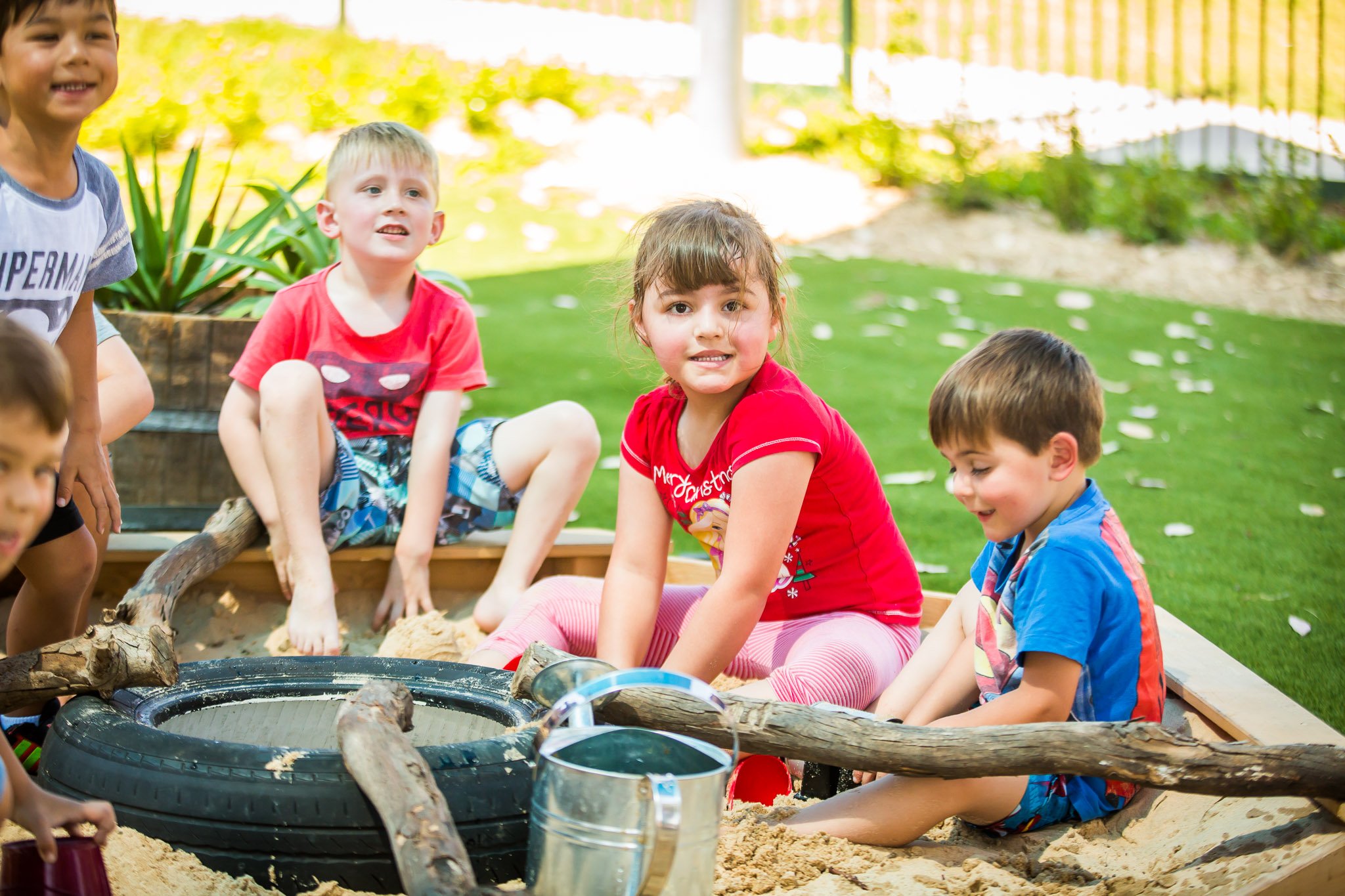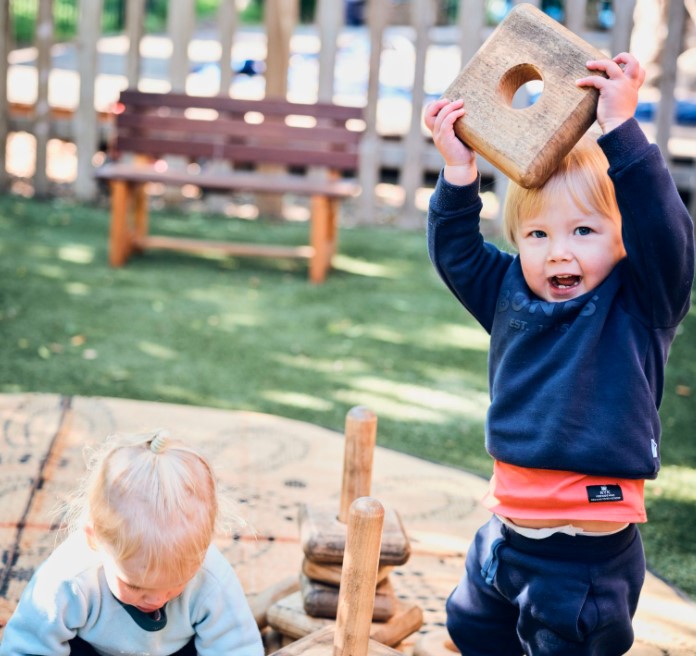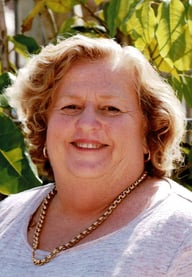A reflection by Donna Morley, Gowrie NSW
An innovative partnership between Gowrie NSW and Psychologist Beth Macgregor aims to build educator capacity to understand and respond to children’s behaviours more effectively. This is the aim of many Behaviour courses and specialised approaches and has been the motivation behind much research in the fields of education and psychology for many years, however, this course begins with the educator. It examines how we think about children’s behaviour and examines the importance of mindset in rethinking our approaches.
Five of the Gowrie NSW support team completed the pilot program of Supporting Children’s Behaviour: Helping Children Thrive through Positive Connection together with some external educators. This was an ingenious process in itself, as it enabled us to experience the course content and delivery from a learner’s perspective. After each of the six sessions, we would meet with Beth to discuss the learner experience, the content and the delivery of the materials in detail, providing valuable feedback in the course design process.
- What resonated with us as experienced educators?
- Was there too much repetition or not enough to ensure learning?
- Was there enough diversity in the materials to cater for a range of learning styles? And so on.
The process of ‘train the trainer’ enabled us to ask questions from both a learner and trainer perspective but also to be guided through Beth’s thinking in presentation style, order, and content. Nothing was off the table for analysis, reflection or query and in examining the pilot in its entirety, from the multiple perspectives of the learner, educator, manager, trainer, we were able to provide Beth with valuable information to inform some fine-tuning in the course. The sessions were recorded in order for us to be able to revisit the nuances that we had discussed, to aid in further fine-tuning and to strengthen our own understanding. Beth then used this information, and feedback from other participants, to consolidate a final iteration of the course for us to teach to our Early Education and Care and Outside School Hours Care educators across the organisation

Effective critical reflection
So how is this course different from other behaviour courses offered to the sector? Beth’s extensive experience in the Psychology field, and years of working closely with early childhood professionals, as well as supporting many young children, brings a great deal of insight into the course. Beth skillfully weaves research-based understandings from the disciplines of Psychology, Neuroscience and Education, linking the three together to make sense of human behaviour, and especially that of our youngest humans. Throughout the course there are opportunities to reflect on our own behaviour and how our thoughts and actions impact that of others, as well. These opportunities to look more closely at ourselves in new ways, has seen many of the participants engaging in effective critical reflection to support significant positive change. While the EYLF and MTOP implore us to critically reflect on practice, many educators struggle to understand what critical reflection really is and the significance of this process in improving outcomes for children.
The course is content-rich, drawing directly on recent research and well-established approaches, however, it is its practical components, underpinned by the theoretical perspectives, that enabled the ‘ah-ha!’ moments for the participants. When you understand why and how the processes work, it makes more sense to facilitate the changes necessary. Transformational change is difficult for most of us, but the beauty of this course is that it builds skills and knowledge together in the participants, each session adding a carefully sequenced layer to the learning and skills from the last, and providing opportunity and encouragement for each participant to trial the new approaches.

See behaviour in a new light
The course cements a broader understanding of a range of familiar and less familiar approaches, cleverly combining diverse pieces of the puzzle to help us view behaviour in a new light. Drawing on familiar relational approaches such as Circle of Security & Playspaces, the course shifts the way we interpret behaviour by examining brain science and introducing techniques such as deep breathing and mindfulness which have been proven to lower stress hormones in both the adult and child. It draws on the work of psychologists Stuart Ablon and Dr Stuart Shanker who provide insights into children’s abilities to self-regulate and problem solve, and on the work of Dr Becky Bailey who provides strategies for supporting children’s skills through her Conscious Discipline approach.
By viewing behaviour through the lens of understanding, by knowing the child and their unique context, and by applying critical reflection to our environment, our teaching styles, our own communication and interactions, participants are able to work more effectively to consider behaviour with curiosity and empathy, and look for skills the child may need to navigate their way through their day; a very solid start. With this change of mindset, educators are less likely to be reactive, rather they are able to take the emotion out of their response by using techniques such as breathing, emotion coaching and empathy to support the child.
Behaviour as a form of communication
We have begun teaching the course to two cohorts of educators who work with preschool age children in our Gowrie NSW centres. So far, the responses have been very positive with success stories from educators who describe complete changes in the way children respond to their new approaches, that rather than escalating negative behaviours or distress, the new approaches support the children to problem-solve their difficulties and enable them to be better regulated. By focusing on behaviour as a form of communication, educators are more likely to remain calm in stressful situations and this in turn helps the child to remain calm and leads to more effective decision making by both parties. After successfully using the steps of emotion coaching to help a child who was hitting out, join in play with the other children, one educator explained, “I smiled, watching from a short distance as the boys ran off and played together. I was so happy and proud of them. Being my key educator child, I knew that he struggles to enter established play, and by using the steps I was able to effectively support him to enter and participate in group play.”
This course has been like trying on a new outfit; one that helps to mould a new identity. At first, there are things about it you love and some you’re not sure about, it’s a bit uncomfortable, a bit scratchy perhaps, a little bit awkward, however when it is worn many times it begins to be an everyday part of who you are, familiar and comfortable, unquestionably part of your very being, that you could never imagine being without it.
The mindset change that views any behaviour as a longing to fit in and to be safe and loved is one where educators approach challenging behaviour with curiosity about what the behaviour is communicating. This means that educators will listen very deeply with empathy to what children are trying to express and will support children authentically to develop the skills they need to be well regulated, life-long learners and contributing citizens in their community.
It is my hope that all our educators at Gowrie NSW and beyond who experience this course are empowered by this mindset.
Supporting Children's Behaviour
Complimentary Session
Learn more:
Beth Macgregor: http://www.bethmacgregor.com/
Circle of security: https://www.circleofsecurityinternational.com
Conscious Discipline : https://consciousdiscipline.com/
Playspaces: https://securebeginnings.com.au/
Stuart Ablon: https://www.youtube.com/watch?v=zuoPZkFcLVs
Dr Stuart Shanker: https://self-reg.ca/wp-content/uploads/2021/05/infosheet_5-Domains-of-Self-Reg.pdf
About the Author

Donna Morley has worked in the Early Childhood Sector for 40 years in a range of roles: Early Childhood teacher, Director, Academic, TAFE Teacher, Practicum supervisor, Mentor, Reconciliation Action Plan Champion, and Educational Leader. In 2010 Donna led a team of educators, through practitioner research and transformative change, to achieve the ACECQA Excellent Rating in 2018. Donna believes in lifelong learning, and views children as active participants and learners from birth, she aims to ignite learners of all ages with a passion for exploration, discovery and lifelong learning.












